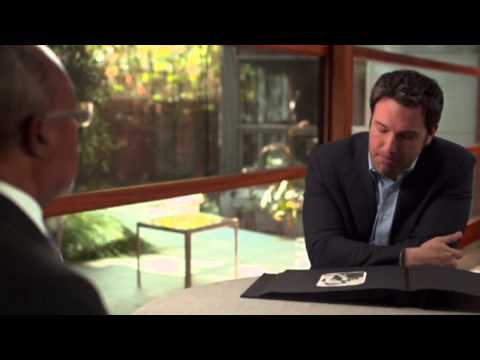 PBS chief Paula Kerger says she hopes “Finding Your Roots” returns after a Ben Affleck scandal that resulted in Henry Louis Gates’ genealogy show being pulled from the schedule earlier this year.
PBS chief Paula Kerger says she hopes “Finding Your Roots” returns after a Ben Affleck scandal that resulted in Henry Louis Gates’ genealogy show being pulled from the schedule earlier this year.
As part of a cache of Sony documents released by WikiLeaks indicated that Ben Affleck, after being on the show with Gates, asked him that information about his ancestors being slaveholders be left out of the program.
An exchange between Gates and Sony exec Michael Lynton asking what he should do about a “megastar” who wanted to “edit out something about one of his ancestors — the fact that he owned slaves.” Though the exchange between Gates and Michael Lynton seemed to indicate that they would leave the information in, the episode aired without it.
Affleck, for his part, apologized for it on Facebook, saying “I didn’t want any television show about my family to include a guy who owned slaves. I was embarrassed. The very thought of it left a bad taste in my mouth.”
In April, Gates isued a statement that “in the case of Mr Affleck we focused on what we felt were the most interesting aspects of his ancestry – including a Revolutionary War ancestor, a third great–grandfather who was an occult enthusiast, and his mother who marched for civil rights during the Freedom Summer of 1964.”
A PBS statement at the time said “Finding Your Roots” producers in this case “made an independent editorial judgment to choose the most compelling narrative.”
But Saturday during the PBS sessions at the TV Critics Association summer press tour in Beverly Hills, Kerger said “what we determined in looking at it is that there was a level of work within the production company that we felt required additional oversight, specifically additional researcher, additional genealogist, independent genealogist that could look at and vet that material.”
In the mean time there has been no announcement of a new season. “We are working with WETA and the producers to ensure that they have, in fact, the right processes in place to make sure that the content that’s delivered is of the quality and accuracy and authenticity that is the hallmark of public television.”
Work on a third season has begun, she said, “but it is not complete, and we’ve not made a decision yet. We want to be sure that it is given the proper scrutiny that we think is necessary to ensure the integrity of the series.”
“We hope to bring it back,” Kerger said. “That’s our plan.”
She said PBS was we were “already deeply involved” before the ombudsman there flagged it.
“I don’t think it’s tarnished PBS,” Kerger says, “I think, in part, because I think the whole thing was very unfortunate. The fact that we found out about it reading the WikiLeaks was the most unfortunate of all.”
The whole affair, she said, “is a powerful reminder that all the programs that we bring to our air, not just news and public affairs, have to adhere to a standard. And I think that the other thing about it is that we were serious about it, and we took the time to look at it very carefully. We wanted to understand exactly what had happened, what had gone wrong, and made sure that we have the appropriate oversight in place moving forward, but also as a reminder to all of our producers that, you know, we really do take this seriously and but we also want to be fair and not punitive.”